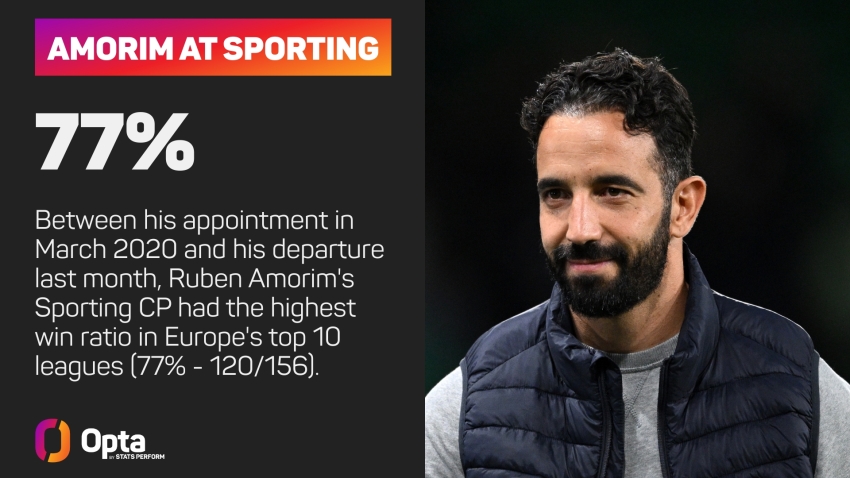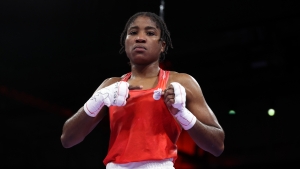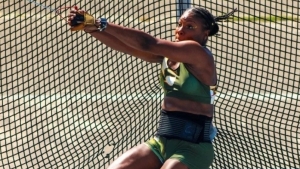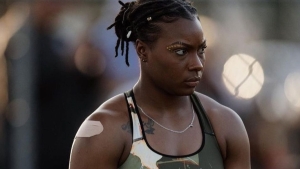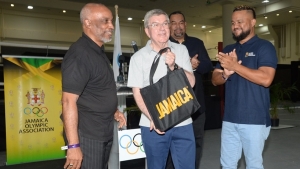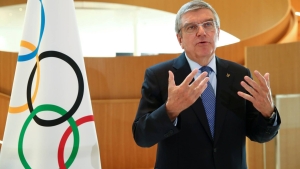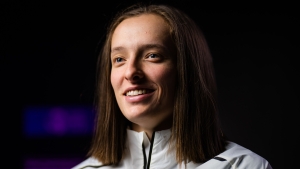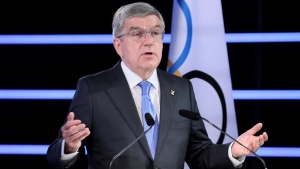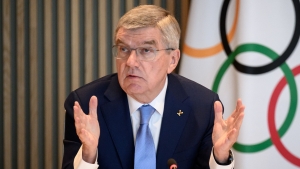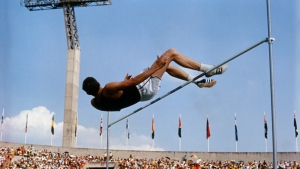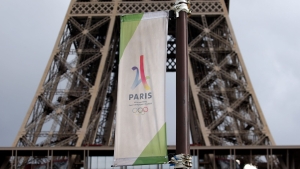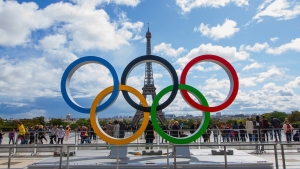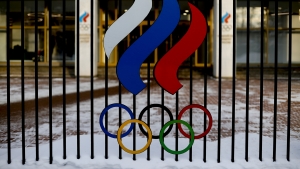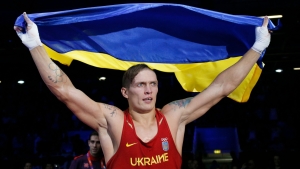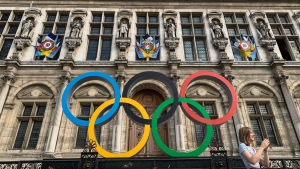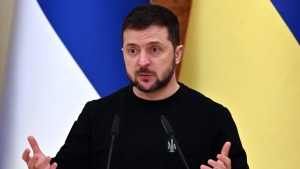Olympics chief Thomas Bach has attacked politicians pushing for Russian and Belarusian athletes to be prevented from returning to international sport, saying their attitude is "deplorable".
International Olympic Committee (IOC) president Bach launched a tirade on Thursday at the "negative reactions" to plans to allow competitors from Russia and Belarus to compete in global sporting events as neutral individual athletes.
There has been no final decision taken yet on whether those athletes can take part in next year's Olympics; however, there will be potential pathways for them to qualify for the Games, and it could yet mean there are Russians and Belarusians taking part in the Paris Games while war continues in Ukraine.
Government figures in the UK, Germany and beyond have expressed opposition to such athletes being allowed to take part, although IOC guidance on Tuesday potentially opened that door.
For those politicians there was a fierce rebuke from Bach.
Speaking at a press conference on Thursday, Bach said: "Today the IOC executive board discussed the reactions to our recommendations issued on Tuesday.
"There we have taken note of some negative reactions by some European governments in particular. I can only reaffirm there what the Olympic movement and all the stakeholders have made very clear before: that it is deplorable to see some governments do not want to respect the majority within the Olympic movement and of all stakeholders, nor the autonomy of sport which they are praising and requesting from other countries in countless speeches, UN resolutions, EU declarations, and at every other opportunity.
"It is deplorable that these governments do not address the question of double standards with which we have been confronted in our consultations.
"We have not seen a single comment from them about their attitude towards the participation of athletes whose countries are involved in the other 70 wars and armed conflicts in the world.
"It is even more deplorable that they grossly neglect the very clear statement of the two special rapporteurs from the UN human rights council. While in other issues they are always highlighting their firm request for the respect of human rights
"Discussions and reactions from the Olympic movement are making it very clear, that these government interventions have strengthened the unity of the Olympic movement.
"All stakeholders make it very clear again: it cannot be up to the governments to decide which athletes can participate in which competition. This would be the end of world sport as we know it today.
"The Olympic movement stakeholders are very concerned about this politicisation of sport. They are very concerned about the attitude of these governments wanting to take over the participation and the decision of participation in sport events in their country or even in other countries."
Bach pointed to a letter from the presidents of the five regional groupings on national Olympic committees, representing all 206 NOCs, in which he said it was stated that "international sports competitions welcome athletes from all countries".
Asked why it was only athletes from Russia and Belarus that were being asked to compete as neutrals, rather than those from other conflicts and wars to which he referred, Bach said that was "because this was a blatant violation of the Olympic truce and happened between the Olympic Winter Games and the Paralympic Games".
That was a reference to the timing of the beginning of Russia's invasion of Ukraine in February 2022.
With regard to Germany and the UK, Bach said: "Both NOCs have made it very clear they do not boycott, and we will not punish athletes or an NOC for the position of their governments.
"We will always make every effort not to punish athletes for misbehaviour of their national governments."
Bach, who is German, said "a vast, vast majority of all stakeholders of the Olympic movement" supported the IOC putting in place conditions for the possible return to international competition of athletes with Russian and Belarusian passports.
He added: "I can only reaffirm the entire Olympic movement strongly stands by its values and by its mission to unite the world in a peaceful competition."











